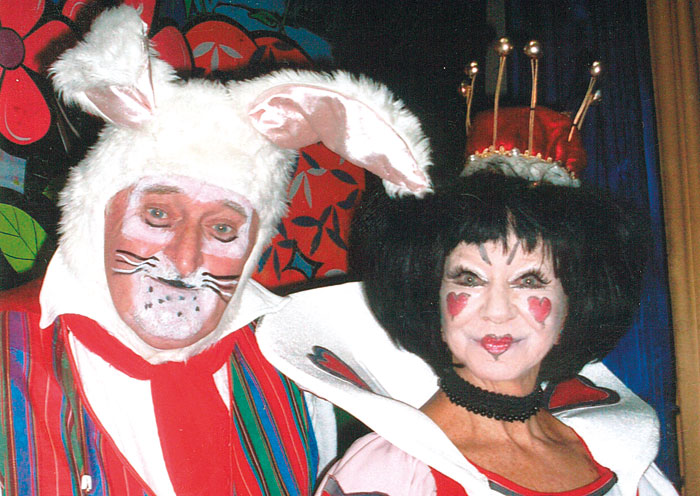All the world’s a stage.
Katherine Hepburn once quipped of acting, “It’s a business you go into because you’re egocentric. It’s a very embarrassing profession.” It certainly is an occupation that could quite easily be construed as decidedly individualistic, along with the various motivations for entering into acting as an occupation. There’s nothing particularly wrong with this, but it is perhaps a rare actor who is propelled by a desire to contribute.
Justin Olstein and Eleanor Sharpe’s documentary Curtain Call focuses on Carole-Ann and Terry Gill, a couple who have been devoted to theatre almost their entire lives. Now aged in their 70s, the Gill’s run a slightly decrepit pantomime theatre, named the Tivoli, that is at risk of facing closure – a result of the landlord’s decision to renovate and upgrade. Terry might be familiar to some viewers, having etched out a reasonable career as a character actor in television and film. He’s certainly the more pragmatic of the two. The theatre is a hobby to him, a lifelong love and a way for him to keep occupied in his old age. He mentions, “When I became an actor, all of a sudden I had an identity.”
Less astute is his wife, Carole-Ann, who seems to have suffocated herself in her own ongoing delusions of grandeur and ability. “I’m a very good actress,” she says. “I would have loved to do more with my acting.” She compares the plight of the Tivoli to that of Jesus on the Cross and the ‘pure evil’ of their landlord to Hitler’s coordination of the Holocaust. Whereas Terry seems to continue out of a sense of fun and activity, there’s a distinct impression that the Tivoli pantomimes are an outlet for Carole-Ann to exhibit her talent. Her audience, unfortunately for her, are more interested in seeing a character being hit in the face with a pie.
Their relationship is both loving and tumultuous. He is the more forgiving, Carole-Ann seemingly blaming her lacklustre career on her relationship with Terry and her subsequent migration from England to Australia. She mentions that back in England she was part of a posse of which many members went on to become significant performers. Terry gently suggests that perhaps she just wasn’t meant for the big time, but she confidently reassures him that just isn’t the case. There’s a certain ambiguity to both their pasts. Carol-Ann reveals uncertain details regarding her mother’s puzzling sexual activity while Terry briefly mentions a horrific car crash. He declines to mention who was at fault, although does concede it was the incident that drove him to reconsider his life choices.
There are some complicated questions regarding human nature that are posed by Curtain Call that may take more than one viewing to grasp. Curtain Call opens with a poignant photo montage of Carole-Ann and Terry, spanning their life together as actors from youths until today. They’ve a passion for acting, provoked perhaps by different longings, and a particular devotion to one another. The film is not a look at how acting has shaped Terry and Carole-Ann, but rather an examination of how they have shaped themselves. Terry admits that Carole-Ann’s distinctive personality has a dichotomising affect on people. He doesn’t care, he loves the way she is.
8/10
For more on MIFF, click here. If you’re digging ReelGood, sign up to our mailing list for exclusive content, early reviews and chances to win big!

